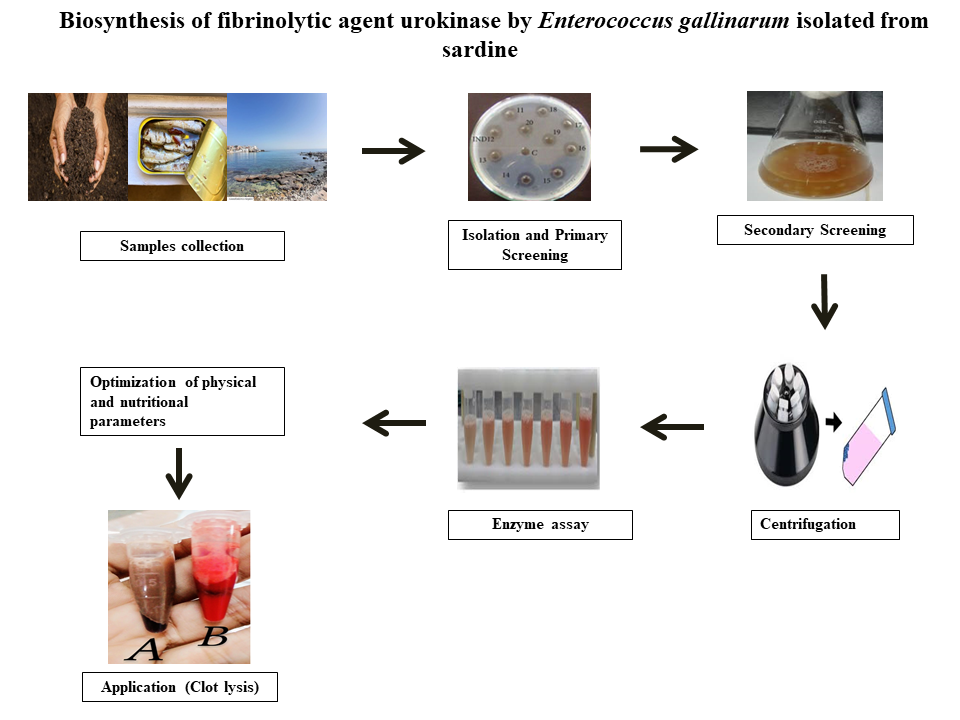 |
|
Fibrinogen degradation by thrombin leads to the formation of fibrin clots in the blood which results in cardiovascular diseases due to which certain fibrinolytic agents are used to treat cardiovascular complications. Urokinase is being favored as a fibrinolytic agent due to its high fibrin specificity and fewer side effects. Therefore, the main objective of this research was the isolation of potent urokinase producing bacteria from soil, seawater, and fermented food samples. Thirty-five isolates that were capable of producing urokinase were isolated using sixty samples and subjected to secondary screening for urokinase estimation. Bacterial isolate QGA-20 that showed maximum enzyme activity 52.6±0.03 FU/ml/min was identified by 18s RNA sequencing as Enterococcus gallinarum which has never been reported before for urokinase production. Different physical and cultural parameters such as fermentation medium, incubation time, temperature, pH, carbon source, nitrogen source, inoculum size, and trace elements were optimized for submerged fermentation to synthesize urokinase. Maximum production of urokinase 81.3±0.02 FU/ml/min was obtained with M-5 fermentation media at 96 hrs of incubation, 37oC temperature, 7 pH, sucrose as carbon, and soya flour as a nitrogen source, 3% inoculum size and CaCl2 as a trace element. In in vitro studies, urokinase enzyme was also applied for the disintegration of clot successfully. This study revealed a potent urokinase producer, reported first time, with appreciable clot lysis ability.
Keywords: Fibrinogen, Thrombin, Fibrin clots, In vitro, Thrombosis.
|
|
 |

